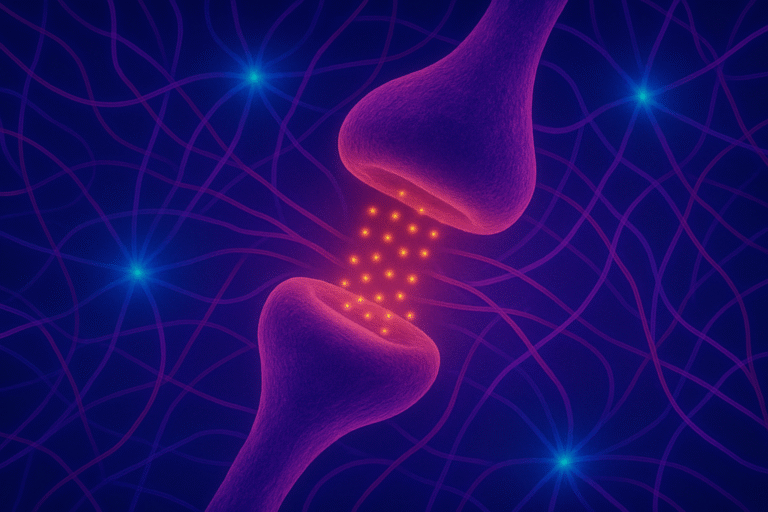AK Psychology Group | Evidence-Based Perspectives on Psychedelic-Assisted Therapy
There is a moment that can arrive unexpectedly during a psychedelic journey. You might find yourself face-to-face with a memory you’ve spent years avoiding, or suddenly aware of a pattern you’ve been blind to. The medicine shows you something true about yourself, and with that truth comes a flood of difficult emotions—shame, guilt, grief, anger, or despair so intense it feels overwhelming.
“I’m a terrible person,” the voice whispers. “I’ve wasted my life. I’ve hurt everyone I love.”
If you’ve experienced something like this, you’re not alone. What many people don’t realize is that these moments of profound discomfort may actually be where healing begins.
Recent research from 2025 sheds light on a commonly overlooked aspect of the psychedelic experience. Difficult emotions like shame and guilt, often considered unwelcome or “negative,” may in fact be central to why psychedelics can catalyze deep emotional healing when handled with proper clinical support.
The Research: What Science Reveals About Difficult Emotions and Healing
In a large naturalistic study published in 2025, researchers explored the experiences of over 300 individuals who had taken psilocybin outside of clinical settings. Their findings were striking and challenge common assumptions about what constitutes a “successful” psychedelic experience.
More than two-thirds of participants reported experiencing shame or guilt during their journey—emotions that extended far beyond brief moments of discomfort. For many, these feelings were intense, complex, and persistent throughout significant portions of their experience (Davis et al., 2025).
The Clinical Significance: What emerged from this data is a fundamental reframe that matters for both practitioners and patients. These emotions were not detours from healing or signs of therapeutic failure. Instead, participants who experienced and successfully processed these emotions during their session showed greater improvements in well-being weeks and months later than those who did not encounter such challenges.
The Integration Factor: The study revealed a critical clinical insight: the presence of difficult emotions was not the determining factor in long-term outcomes. Rather, it was the participant’s ability to work through these emotions constructively during the session that predicted therapeutic benefit. Those who reported being “very able to work through” their difficult emotions showed the highest levels of both mystical experience and sustained well-being improvements.
This suggests that what we often label as a “bad trip” may actually be the moment therapy begins—not because something is wrong, but because something real and therapeutically relevant is ready to be addressed.
Clinical Framework: Understanding Difficult Emotions Through a Depth Psychology Lens
To make sense of these research findings, we need a theoretical framework that can bridge empirical data with clinical understanding. Psychoanalyst Daniel Shaw’s work on self-alienation provides precisely this bridge (Shaw, 2023).
The Neurobiology of Self-Alienation: Shaw explains that emotions like shame, particularly when rooted in early relational trauma, create what he terms “self-alienation”—an internal split where one part of the psyche observes and judges another part as fundamentally flawed. This division operates largely outside conscious awareness but profoundly shapes emotional regulation, self-perception, and relational patterns.
Psychedelics and Psychological Integration: The research suggests that psychedelics may temporarily dissolve these internal barriers, creating what Shaw describes as opportunities for “reconnection with parts of ourselves long exiled.” During this state of enhanced neuroplasticity, individuals can experience glimpses of self-compassion and psychological wholeness that may have been inaccessible for years.
The Integration Imperative: However, Shaw’s clinical observations align precisely with the Davis study findings: without proper therapeutic support to integrate these insights, old patterns of self-judgment often return “more forcefully than before.” The neuroplasticity window that makes healing possible also makes psychological destabilization more likely without appropriate clinical containment.
This convergence of research data and clinical theory provides a robust framework for understanding why integration support is not optional but essential for therapeutic outcomes.
Evidence-Based Integration: From Research to Clinical Practice
Translating these research findings into clinical practice requires a structured, evidence-informed approach to integration. The Davis study data, combined with emerging neuroscience research on psychedelic-enhanced neuroplasticity, informs our clinical protocol:
Immediate Post-Session Period (Days 1-7): Research indicates this represents a critical neuroplasticity window. Clinical focus centers on emotional containment and nervous system regulation rather than cognitive processing. The goal is stabilization, not analysis.
Active Integration Phase (Weeks 2-4): As initial neurobiological changes stabilize, structured therapeutic exploration becomes possible. This phase focuses on meaning-making, emotional processing, and beginning to translate insights into behavioral changes.
Sustained Integration Phase (Beyond Week 4): Long-term neuroplastic changes require ongoing reinforcement through therapeutic practice. This phase emphasizes embedding new patterns into daily life and relationships.
Clinical Protocols for Difficult Emotions: When challenging emotions arise during sessions, our evidence-based approach includes:
- Real-time support for emotional regulation during the experience
- Structured debriefing that validates difficult emotions as therapeutically meaningful
- Trauma-informed integration that recognizes the potential for both healing and destabilization
- Collaborative care coordination with existing therapeutic relationships to ensure continuity
This protocol reflects both the research evidence and clinical best practices from trauma-informed psychotherapy.
Practical Guidance for Processing Difficult Emotions
If you’ve encountered challenging emotions during a psychedelic experience, here are three practices that can support your healing:
1. The Self-Compassion Pause: When difficult emotions arise, place your hand on your heart and speak to yourself as you would a beloved friend. “This is really hard right now. I’m not alone in struggling with this. May I be kind to myself.”
2. Body-Based Grounding: Challenging emotions often create a sense of collapse or disconnection. Practice standing tall, taking up space, breathing deeply into your belly. Let your body remember its inherent dignity.
3. Integration Journaling: Write about the emotions without trying to fix or change them. What are they trying to tell you? What old wound might they be protecting? What would self-forgiveness look like?
Professional Standards and Collaborative Care
The research findings have important implications for clinical practice and professional standards in the psychedelic field. The Davis study’s emphasis on integration support aligns with our collaborative care model, which recognizes that optimal outcomes require coordination between all providers involved in a patient’s mental health care.
For Mental Health Professionals: Understanding that difficult emotions during psychedelic experiences may be therapeutically significant rather than contraindications helps inform treatment planning and client preparation. The research suggests that proper clinical support can transform challenging experiences into opportunities for meaningful psychological work.
For Interdisciplinary Collaboration: Integration works most effectively when it’s embedded within existing therapeutic relationships rather than isolated as a standalone intervention. This requires ongoing communication between psychedelic facilitators, primary therapists, and other mental health providers.
Clinical Implications for Safety: The research validates clinical protocols that prepare clients for the full range of possible experiences, including difficult emotions, rather than focusing solely on positive outcomes. This evidence-based approach to informed consent helps establish realistic expectations and appropriate support structures.
Your Journey Continues
If you’ve encountered difficult emotions during a psychedelic experience, remember that this is often where the real work begins. The medicine has shown you something true. Now the question becomes: How will you meet that truth with compassion rather than condemnation?
You don’t have to walk this path alone. At AK Psychology Group, we understand that integration is where healing happens, and we’re here to support you through every step of the process.
Ready to learn more about our approach to psychedelic integration? Download our free Psychedelic Integration Workbook, a comprehensive guide for preparation, reflection, and integration that has supported many clients through transformative healing experiences.
At AK Psychology Group, we offer ketamine-assisted psychotherapy for adults and teens navigating trauma, depression, anxiety, and spiritual exploration. Our sessions are grounded in clinical care, safety, collaboration, and thoughtful integration.
Learn more about our approach →
References
Davis, A. K., Smigielski, L., Barrett, F. S., & Griffiths, R. R. (2025). Shame, guilt, and the psychedelic experience: Prevalence, predictors, and associations with outcomes. Journal of Psychedelic Studies, 9(2), 75–91.
Shaw, D. (2023). Shame and self-alienation: A trauma-informed psychoanalytic perspective. Psychoanalytic Inquiry.








